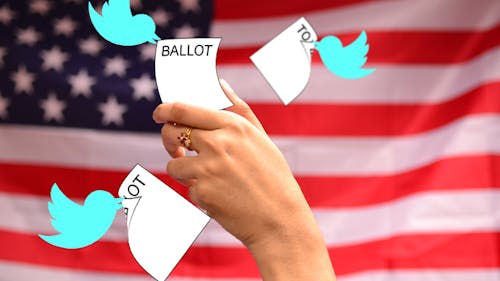Rutgers Center for American Politics uses Twitter to 'gender watch' 2016 elections

While many students might have expected Hillary Clinton to run for the United States presidency, not many would anticipate a Twitter page dedicated to "gender watching" presidential candidates.
In light of the announcement of Hillary Clinton's 2016 presidential campaign, the Center for American Women and Politics (CAWP) created a Twitter account dedicated to "gender watching" the 2016 presidential campaigns.
CAWP, a unit of the University's Eagleton Institute of Politics, is recognized as the leading source of scholarly research and data about American female political participation, according to their website.
The center aims to provide knowledge about female political participation in order to enhance women’s roles and leadership in politics, according to their website. They have many educational outreach programs that involve research and action, while also addressing the issue of underrepresentation of women in politics.
“Gender Watch is to further public understanding of how gender influences candidate strategy, voter engagement and expectations, media coverage and electoral outcomes in the race for the nation’s highest executive office," according to their website. "Our goal is to lend expert analysis to the dialogue around gender throughout the election season."
Gender Watch is a project jointly founded by Rutgers CAWP and the Barbara Lee Foundation, a foundation aiming to advance gender equality and representation in U.S. politics and in contemporary art, said Kelly Dittmar, an assistant professor in the Department of Political Science and manager of the Twitter page.
Gender Watch was created in order to have a social media platform devoted specifically to gender-related topics during the 2016 election, including gender stereotypes, female voters and candidates, Dittmar said.
“We knew going into this presidential election ... that gender would be an area of interest and of commentary, not only because there is a likely female candidate, but also because it is a common issue in recent elections,” she said.
The project organizers anticipated gender-related conversations and wanted to make sure they were involved in them, Dittmar said.
“Our goal is to provide expert analysis to discussion of gender in the election and to elevate that dialogue with the research we have done and other experts have done, to be sure that it is informing to the way we look at, analyze and talk about gender,” she said.
The goal of using social media is to share new ideas and analyses in order to create awareness and spread information that is particular to gender dynamics in the presidential election, Dittmar said.
Social media plays a huge role in politics, particularly with the upcoming 2016 election, according to ABC News. It is a way to connect directly to voters, especially younger ones.
On Twitter, Hillary Clinton has received thousands of tweets following her campaign announcement via video.
The Gender Watch Twitter page is useful not only for scholars, but also for reporters who see it as a useful source, Dittmar said. To make their account stand out, they try to post information and commentary as well.
Although the Twitter page has only been up for a few days, the response has been positive so far, she said. There has been no direct response from students as of now, but the project organizers hope to engage students and allow their voices to be heard.
While many might consider social media to be an effective way to communicate with young people, some students oppose this idea.
Media is an important feature to consider when promoting something such as a political campaign, said Elizabeth Binstein, a School of Social Work sophomore.
“Younger people barely watch TV and get all of their news online ... Which is one reason why Hillary Clinton put out that video campaign," Binstein said. "But I wouldn't follow it, and I think it's unnecessary.”
Elections should be about the candidate, their capabilities and their politics — not their gender, she said.
“The longer society plays into the need to gender and separate, the longer it will take for women to achieve equality,” she said.
Other students feel this is in an effective way for CAWP to get their message across.
CAWP is helping students understand gender in politics in light of the announcement of Clinton's presidential campaign, said Dana Godrich, a School of Arts and Sciences first-year student.
“Their usage of social media is useful and informative, letting students have an accessible feed to stay updated about women’s steps and accomplishments in the political world, since it’s a relatively new sight even in the 21st century,” Godrich said.



